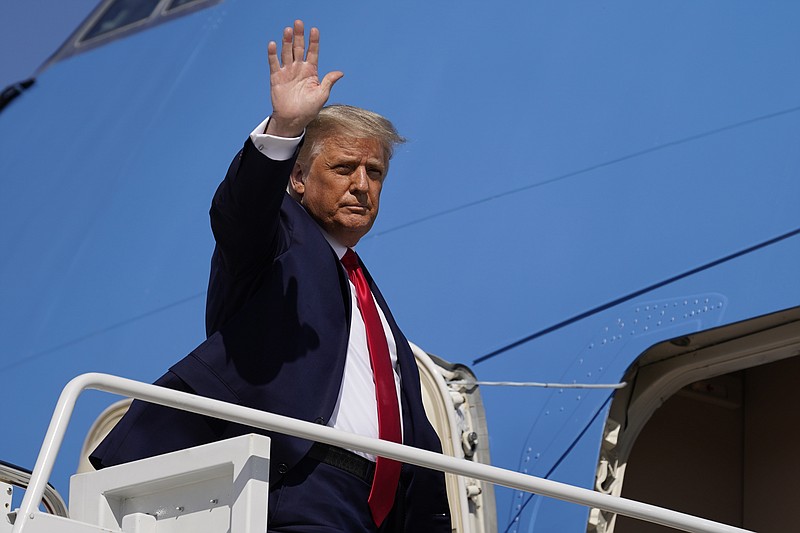When first lady Betty Ford went public with her breast cancer diagnosis in 1974, it prompted many women to have breast exams or to be more diligent with their self-examinations.
So many women did so, according to a 2014 Huffington Post report, that the actual incidence of breast cancer in the United States went up by 15%. Nevertheless, her courage at a time when such a diagnosis often was kept quiet, was credited with saving many women's lives.
Similarly, in 1985 when President Ronald Reagan underwent colon cancer surgery and made a complete recovery, doctors said his early diagnosis and treatment caused a ripple effect in prompting many people to have the relatively new colonoscopy procedure and save their lives.
When President Trump revealed his diagnosis of COVID-19, and that of the first lady's, just before 1 a.m. Friday, it was met with the prayers and well-wishes for recovery from many Americans. But it also was met with a horrific outpouring of hate and glee from those on the left, pointing up the hyperpartisanship of this election year.
Experts say it would be impossible to know exactly how the president contracted the virus, but counselor to the president Hope Hicks had tested positive just hours earlier and had been with the president several times over the last few days. And the president has had a love-hate relationship with masks and reportedly hadn't been wearing one in most of his recent activities.
READ MORE: Trump, stricken by COVID-19, taken to military hospital
But what did those on the left say? Minority Leader Chuck Schumer, D-New York, said the diagnosis is what happens "when you ignore science." House Speaker Nancy Pelosi, oddly, said the tests "at the White House are not as accurate as they should be."
Elsewhere, The New York Times suggested Trump wouldn't stay on the ballot after his diagnosis, a former spokeswoman for 2016 Democratic candidate Hillary Clinton tweeted, "I hope he dies," U.S. Rep. Rashida Tlaib, D-Michigan, said "he only cares about himself," documentary filmmaker Michael Moore suggested the diagnosis might be a ruse and said the president's "not above weaponizing this," and actress Patricia Arquette said the president was likely to downplay the virus as "just a bad flu" (though it's milder or even asymptomatic for many).
And those were the nicer statements.
Trump, who said he had "mild symptoms," is quarantining in the White House and carrying on business as usual.
We would hope as with Betty Ford's and Reagan's cases that such a high-profile diagnosis will remind everyone who hadn't been paying attention of the seriousness of the virus and the precautions that individuals should take. And we would hope, as we would for any U.S. leader, for the Trumps' complete recovery.
